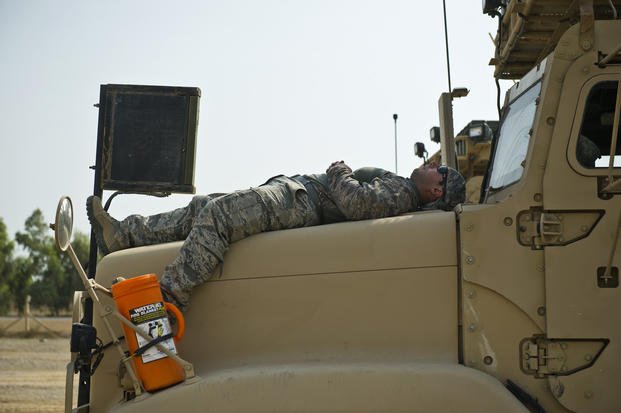It’s no secret that many experience a physical and mental decline after lunch, leaving some feeling the need for a nap. There are many factors that can contribute to midday sleepiness, including poor sleep, poor choices or overeating at lunch, lack of sunlight, lack of exercise, or insufficient hydration.
Some have found ways to make it through the afternoon; some are still fighting. The common ways to get rid of that midday nuisance are a 15-20 minute nap, a 15-20 minute walk, a short workout, or a dose of caffeine.
napping or not sleeping
Most people feel the need to take an afternoon nap, but only a small percentage of us can even consider a nap as an option, largely due to our work situation or environment. According to that American Psychological Associationnapping isn’t a viable option for more than two-thirds of the population, so you need to push yourself or find other ways to feel less tired.
However, if you have a place to rest during the lunch break, a short nap of 15-20 minutes has proven itself many short-term benefitsincluding:
Although research has shown that 30 to 60 minute naps can boost creativity and memory, Longer naps can make you sluggish and disrupt your night’s sleep schedule if you take them too late in the afternoon.
Between 12:30pm and 2:00pm is the best time to find a few minutes for a nap. Matthew Walker, Author of Why We Sleep recommends using naps to better understand your natural circadian rhythm and sleep cycles. However, Walker isn’t a fan of napping to replace a bad night’s sleep or using weekends to catch up on lost sleep.
Consider something other than naps
If lying down at work isn’t an option during your lunch break, take a 15- to 20-minute walk before or after (your choice) your meal. This isn’t the only situation that dictates not napping. Those who should avoid napping are those who have trouble sleeping well at night as it can have negative consequences. In fact, Walker emphasizes that napping doesn’t help with sleep debt (making up for a bad night’s sleep), and in fact, the need to nap can be a sign of something more serious, such as sleep apnea, anemia, thyroidectomy, diabetes, or depression.
Try combinations of options
As the afternoon drags on and you feel like you need a boost, consider a dose of caffeine before napping or going for a walk. This combination can help get you back on track quickly, and author Daniel Pink gave it the nickname “Nappuccino” in his book, “When: The Scientific Secrets of Perfect Timing.”
I find that a 15- to 20-minute walk right after an unsweetened after-lunch tea gives my afternoon a solid boost, especially when I need to get creative, write projects, or stay alert for the rest of the day, when i drive a car
The foods we eat and exposure to sunlight outdoors
The foods and snacks you eat during the day can play a big part in whether you feel like you need a nap. Processed foods, high-sugar foods and drinks, or overeating (even protein) can cause your body to go into a natural “rest and digest” mode. Make sure you get sunlight in the morning or take vitamin D supplements to help your body better regulate your natural sleep cycles.
Both terms have been used by the military and NASA in research showing the benefits of napping. In fact, the Army FM 7-22 Holistic Health and Fitness Field Manual says that “brief and infrequent” sleep attacks “build physical lethality and mental toughness” and “restore alertness and promote performance.”
NASA published a research study showing that scheduled rest periods were helpful for pilots during long flights to reduce attention gaps, or “microsleep.” The Federal Aviation Administration considers the “power nap” acceptable and has been helping pilots since 1990.
Think of these options as tools in your backpack when trying to stay awake and be more productive in the afternoon. There’s no reason why frequent use of all three (nap, walk or exercise, caffeine) along with choosing solid foods for lunch shouldn’t be a regular part of your afternoon ritual. The most important solution, however, is restful sleep at the end of the day with creating a pre-sleep habit that creates the right environment to sleep well throughout the night.
Stew Smith is a former Navy SEAL and fitness writer certified as a Strength and Conditioning Specialist (CSCS) by the National Strength and Conditioning Association. Visit him Fitness e-book store if you want to start an exercise program to create a healthy lifestyle. Send your fitness questions to [email protected].
Want to learn more about military life?
Whether you’re thinking of joining the military, are looking for fitness and basic training tips, or want to keep up with life and the benefits of the military, Military.com has you covered. Subscribe to Military.com to get military news, updates and resources straight to your inbox.
Read complete message
© Copyright 2022 Military.com. All rights reserved. This material may not be published, broadcast, transcribed or redistributed.

